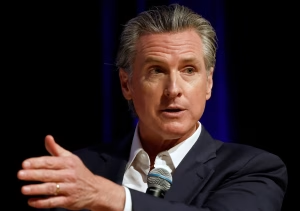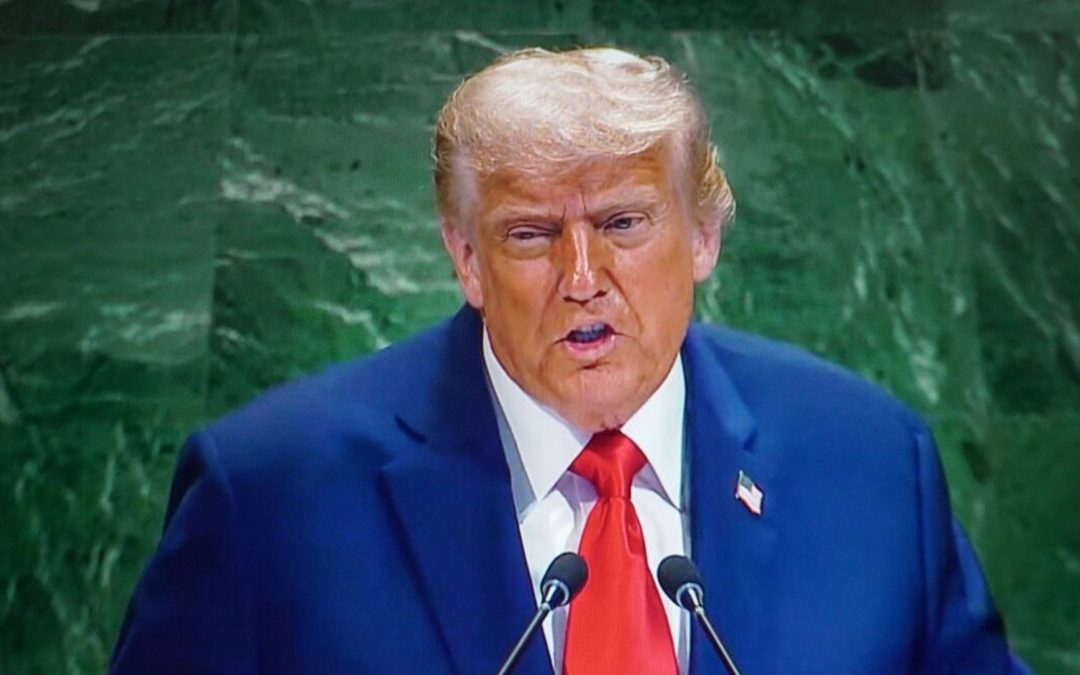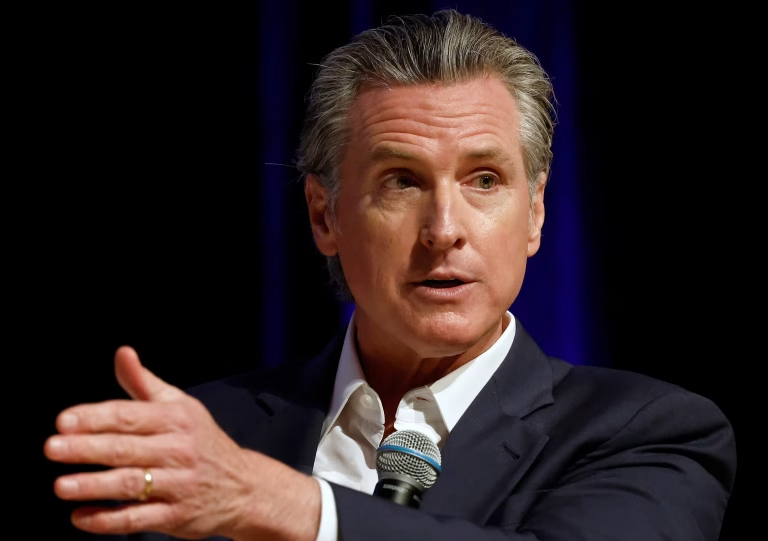The Trump administration has formally announced that the United States will not support a proposed global carbon fee on international shipping — a measure that the United Nations’ maritime agency is preparing to vote on next week.
The initiative, known as the Net Zero Fund (NZF), is being considered by the International Maritime Organization (IMO), the UN body that oversees global shipping rules. If adopted, the NZF would mark the first time a UN agency has imposed a worldwide carbon fee on a specific industry.
Administration officials say the plan amounts to an unfair international tax that would raise costs for U.S. consumers, workers, and energy producers while transferring billions in revenue to a global body with limited accountability.
“The United States will not accept any international environmental agreement that unfairly burdens the American people,” the administration said in a statement released Wednesday.
“We will not tolerate any action that increases costs for our citizens, energy providers, or shipping companies.”
A Clash Over Global Climate Policy
The NZF proposal is being led by several European nations, supported by environmental advocacy groups that argue the shipping industry must take stronger steps toward decarbonization.
According to summaries circulated by the Associated Press and IMO delegates, the plan would establish a minimum $100 fee for every ton of greenhouse gases emitted by large ocean-going vessels above certain limits.
Supporters claim the measure could raise $11 to $13 billion annually, with the funds earmarked for:
-
Accelerating the development of low-carbon marine fuels;
-
Providing financial incentives for “low-emission vessels”; and
-
Assisting developing countries in modernizing their shipping fleets to meet stricter future standards.
If approved, the fee would begin in 2027, following a multiyear phase-in process to establish enforcement rules and reporting systems among IMO member states.
For backers, the proposal represents an ambitious attempt to bring the global shipping industry in line with the world’s broader climate-neutrality targets — but for opponents, it’s a dangerous precedent that places economic control in the hands of unelected international regulators.
https://twitter.com/RonDeSantis/status/1978248626489921761
The U.S. Pushback
U.S. officials described the plan as “a neocolonial export of global climate regulations,” warning that it could reshape international trade at America’s expense.
They also signaled that Washington is prepared to respond with counter-measures if the UN body adopts the proposal. Possible actions under review include:
-
Visa restrictions on foreign maritime officials;
-
Additional port fees for vessels registered in nations that support the NZF;
-
Sanctions on specific organizations and individuals promoting “activist-driven” climate policies; and
-
Competition inquiries targeting shipping companies that benefit from the fund’s incentives.
“The United States will fight to protect its economic interests,” the administration’s statement said. “Other IMO members should be on notice.”
Officials stressed that Washington remains committed to reducing emissions through innovation, not international taxation. They said the U.S. plans to work with allies on alternative measures focused on technology and market-driven solutions, such as cleaner fuel research and improved vessel efficiency standards.
https://twitter.com/johnkonrad/status/1978502959492190509
A Complex Debate Within the IMO
The debate surrounding the NZF comes at a pivotal time for the IMO, which has been tasked with creating a pathway for the global shipping industry to align with the Paris Agreement’s 2050 climate goals.
Shipping accounts for an estimated 3 percent of global greenhouse gas emissions, according to UN data — roughly equivalent to the combined output of Japan and Germany.
Proponents of the NZF argue that only a clear and predictable carbon price will create enough financial pressure to drive investment in zero-emission fuels like methanol, hydrogen, and ammonia. They say voluntary measures and incremental efficiency standards will not deliver the deep cuts needed to achieve “net-zero” emissions by mid-century.
Critics, however, warn that a global levy would increase freight and transport costs across nearly every supply chain — from agriculture to manufacturing to consumer goods — and that the burden would ultimately fall on developing economies and import-reliant nations.
“This would raise shipping costs by as much as 10 percent globally,” one U.S. trade official said. “That means higher prices for everything from cars to groceries to medicine — and all for a fund that isn’t accountable to any national government.”
The Global Divide
The upcoming vote has exposed sharp divisions between industrialized and developing nations.
-
European countries, led by France, Germany, and the Netherlands, view the NZF as a vital step toward global decarbonization.
-
China, India, and Brazil have expressed reservations, citing unequal economic impacts and lack of representation in fund governance.
-
The United States has now taken a firm stance in opposition, joining a bloc of nations that includes Japan, Saudi Arabia, and several Pacific island states that rely heavily on shipping trade.
If the proposal fails to secure majority backing next week, delegates may send it back for further review or attempt to rewrite its key provisions before another vote next year.
What Happens If It Passes
Should the NZF advance, IMO committees would begin drafting implementation guidelines over the next two years. Those would include:
-
How emissions are measured and verified;
-
How funds are collected and distributed;
-
How compliance is enforced among ship operators; and
-
How exemptions, such as for humanitarian or small-scale shipping, are handled.
Supporters envision the system functioning similarly to a global carbon market, but limited to maritime operations. Critics argue that it would effectively become an international carbon tax, administered without direct accountability to voters or domestic legislatures.
The U.S. delegation is expected to present its objections formally at the IMO’s London headquarters, where the session will include representatives from 175 member states.
The Broader Climate Context
The dispute over the NZF is part of a wider debate about how far international institutions should go in regulating global industries in pursuit of environmental goals.
The Trump administration has consistently opposed frameworks that it views as undermining national sovereignty or imposing unequal costs on American workers. In the administration’s view, the NZF is another example of “outsourced regulation” — a system in which global bureaucracies make decisions that directly affect domestic economies.
“We’re not going to let foreign governments or international bodies set policy for the American people,” a senior administration official told reporters. “We support innovation, not taxation.”
Environmental groups counter that without binding international mechanisms, industries like shipping will remain some of the hardest sectors to decarbonize. They argue that voluntary action alone has proven insufficient, citing years of minimal emissions reduction despite technological progress.
Looking Ahead
The IMO session is expected to be contentious. Diplomats anticipate late-night negotiations as countries debate whether to adopt the NZF in its current form, scale it back, or delay it for further study.
Even if the proposal does not pass, the issue is unlikely to disappear. Most observers believe the UN will continue pursuing ways to impose climate-linked fees or standards on global industries as part of its long-term decarbonization agenda.
For now, U.S. officials remain adamant: no international fee or tax on carbon will be accepted without direct approval from Washington.
As the world’s largest trading nation and home to one of the biggest maritime economies, America’s stance carries significant weight. The coming vote will test not only the strength of international climate diplomacy but also the balance between environmental ambition and economic sovereignty.

James Jenkins is a celebrated Pulitzer Prize-winning author whose work has reshaped the way readers think about social justice and human rights in America. Raised in Atlanta, Georgia, James grew up in a community that instilled in him both resilience and a strong sense of responsibility toward others. After studying political science and creative writing at Howard University, he worked as a journalist covering civil rights issues before dedicating himself fully to fiction. His novels are known for their sharp, empathetic portraits of marginalized communities and for weaving personal stories with broader political realities. Jenkins’s breakout novel, Shadows of Freedom, won national acclaim for its unflinching look at systemic inequality, while his more recent works explore themes of identity, resilience, and the fight for dignity in the face of oppression. Beyond his novels, James is an active public speaker, lecturing at universities and participating in nonprofit initiatives that support literacy and community empowerment. He believes that storytelling is a way to preserve history and inspire change. When not writing, James enjoys jazz music, mentoring young writers, and traveling with his family to explore cultures and stories around the world.









